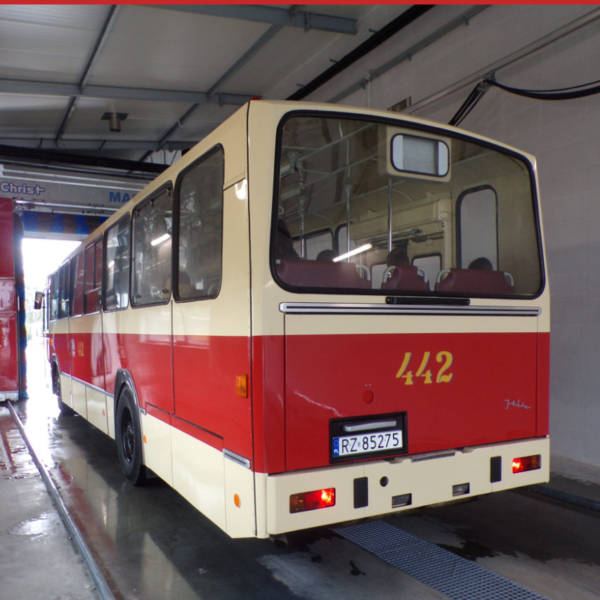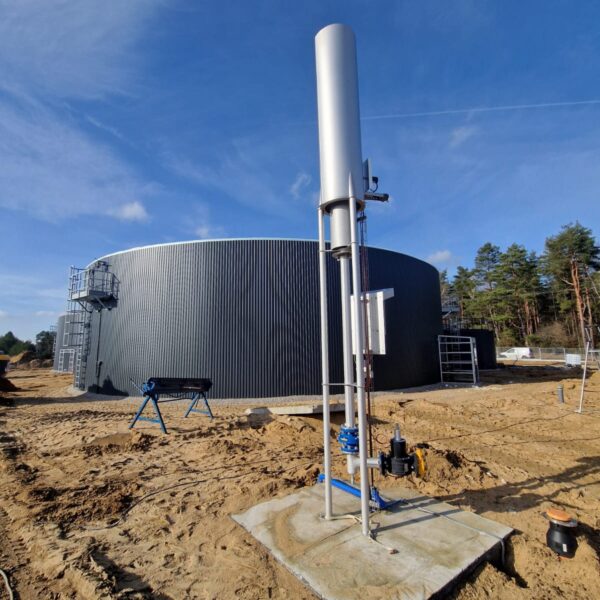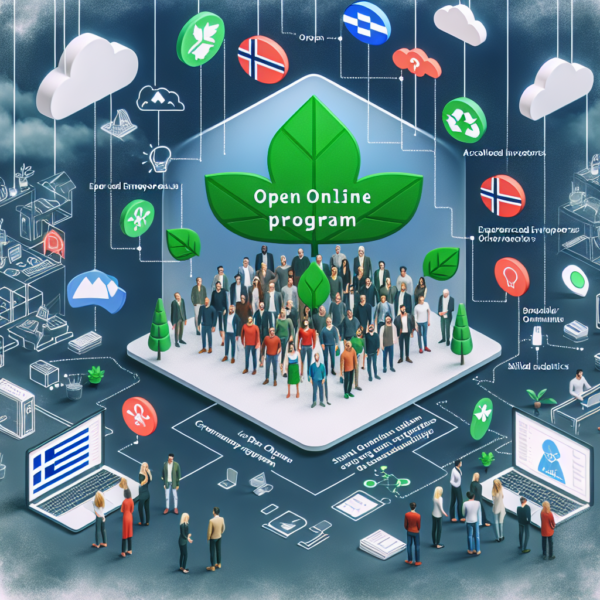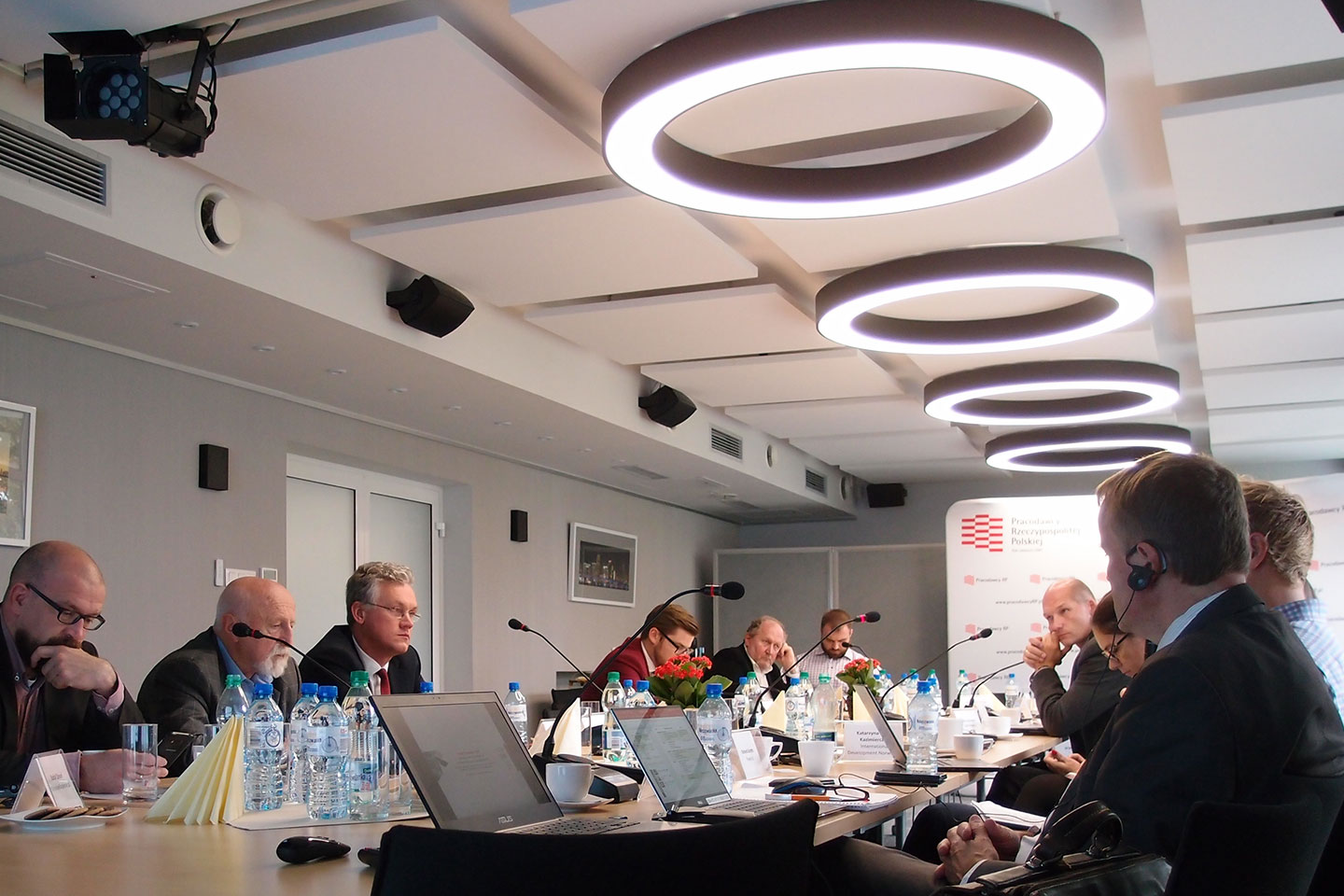
Green Energy Roundtable
Fostering discussions and spreading knowledge about energy efficiency.
Creating a roadmap for energy efficiency.
Even though there is widespread consensus on the urgency of adopting more efficient energy practices, it remains a challenge for European companies and governments. While the first struggle with their actual implementation, the second are lagging in systemic policies to both incentivize and regulate such practices. In light of this discrepancy, the National Environment and Water Management Fund – the most relevant public body working with environmental protection in the country – and the Fund for Bilateral Relations under the Norwegian Financial Mechanism supported the Institute Innovative Economy (IEE) and International Development Norway (IDN) to promote Polish-Norwegian Roundtables.
High-level discussions.
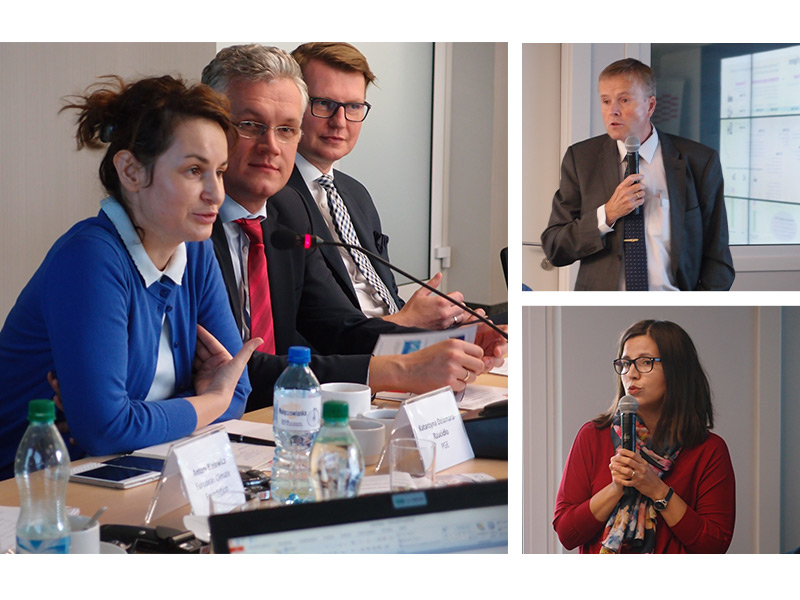
Making use of the partner’s network and the credibility of the event, organizers were able to gather very important stakeholders working directly with energy efficiency, both on the market and regulation sides, to discuss and promote best practices in both countries. Their exchange centered around two main objectives:
- To establish and strengthen cooperation with public institutions and agencies working with energy efficiency;
- To share experiences and possibly influence system practices supporting energy efficiency, program organizations, and funding directions.
The project received, from the Polish side, representatives from the Ministry of Environment, the Ministry of Energy, the Energy Regulation Office, the Chamber of Industrial Energy and Energy Receivers, as well as energy producers, like Tauron, Polska Energia, PGNIG, Energa, Enea, the Energy Market Agency, the Institute for Renewable Energy, the National Agency of Energy Preservation, and the relevant energy chambers.
On the Norwegian side, the roundtable gathered representatives from the Norwegian Water Resource and Energy Directorate (NVE), the Norwegian Environment Agency, ENOVA, the Centre for Sustainable Energy Studies (CenSES), Innovation Norway, the Norwegian Research Council, STATKRAFT, STATNETT, NORDPOOL, NCE Smart Energy Markets, the Norwegian Smart Grid Centre and the Smart Grid Services Cluster.
The main issues discussed during the two-day meeting were:
- Effective resource management;
- Implementation of new technologies;
- Development of dispersed energy;
- Operational and management practices on a system level;
- Policies and regulations and finally forthcoming challenges in the Polish energy system.
After a very fruitful event with productive discussions, the partners issued roadmaps that streamlined the main learnings from both countries. They were able to, in a summarized manner, gather key initiatives, processes, and valuable lessons that appear to be in the center of an effective green energy environment. These go from guidelines for renewable energy, plans for more efficient industry and buildings, advisory initiatives, taxation, and regulatory measures resulting from EU directives. Based on the cooperation of public and private sectors, countries can establish better energy practices that save money for businesses and take a lesser toll on natural resources.
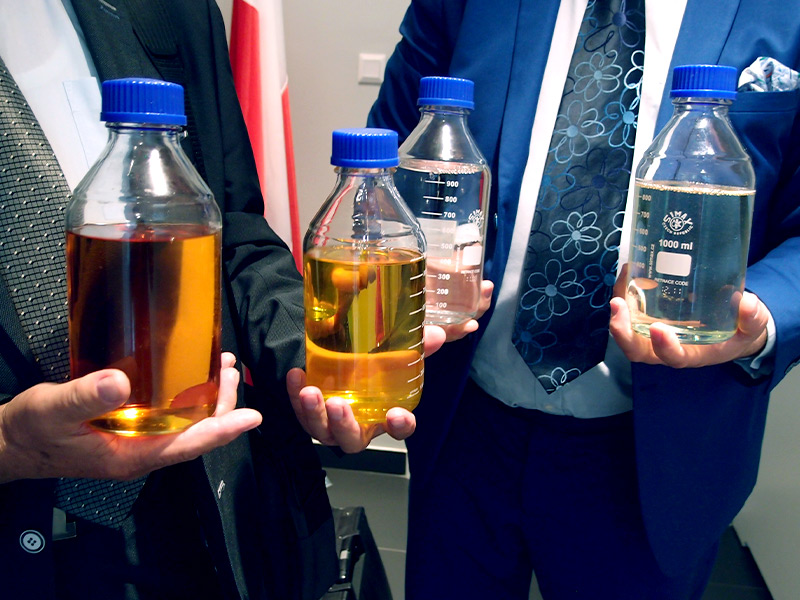
The roundtable left a strong impression on participants, with hope and a clearer vision for a greener future among the main takeaways. Despite the many differences between Poland and Norway, it is clear that cooperation opens the path for better strategies. By exchanging real-life experiences and looking at the inner workings of the mechanisms behind a transition the green energy, governments and companies realize they have the ability to take action towards a more sustainable future.

